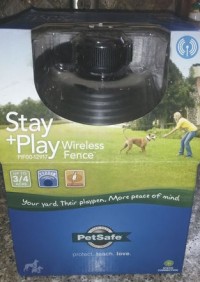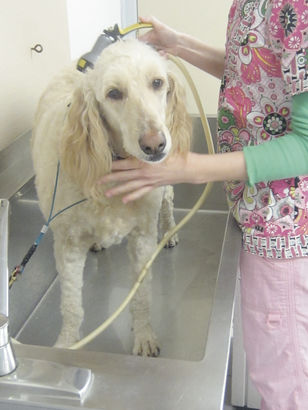Keep Pets on Your Property
By DR, REBEKAH FROST – OBSERVER Columnist , Observer Today
 Responsible pet ownership means providing your pets with the best care you can give them. Care should include providing proper diet and housing, keeping them up to date on vaccinations and preventatives, and containing them in a way that will prevent injury. Being a responsible owner also requires spending time with your pet, giving it the attention the animal requires and deserves.
Responsible pet ownership means providing your pets with the best care you can give them. Care should include providing proper diet and housing, keeping them up to date on vaccinations and preventatives, and containing them in a way that will prevent injury. Being a responsible owner also requires spending time with your pet, giving it the attention the animal requires and deserves.
It is very important to keep close watch of your pets and keep them on your own property. People today are very protective of their property. Property owners may worry about invasion of privacy, damage to their property or injury to their livestock and their own pets. In this “sue happy” world we also need to be concerned with people or pets getting injured on our property. When you let your pets outside, whether intentional or not, you may be compromising their health and putting their lives at risk. Some of the possible mishaps include:
1. Injuries: Motor vehicle accidents, fights with other animals, injuries from traps intended for a wild animal, and shotgun or BB injuries are just a few. In my own small neighborhood, I have had to amputate a dog’s leg that was caught in a coyote trap and I have seen dogs shot and killed for being a nuisance and a possible threat to a neighbor’s dairy cows. As a veterinarian I have treated many fight wounds in cats and dogs and have seen many pets that do not survive being hit by cars. Recently we treated an older cat with an eye injury. She was found as a stray by one of our clients. She was very sweet but was in a significant amount of pain. We were unable to save her eye and when she underwent an enucleation (eye removal) surgery, we discovered a BB shot lodged in her eye.
2. Dietary Indiscretion: Roaming pets may pick up and ingest just about anything. They may find a toxic substance like rat poison or antifreeze. Your pet may also get into garbage, which can lead to a number of problems from mold toxicity to inflammation of your pet’s pancreas. Both of these conditions can be fatal.
3. Risks to pets that are not neutered: Ninety percent of animal car fatalities are to pets that aren’t neutered. These pets tend to roam more and get into trouble. If you have a female pet that is not spayed she will quickly find a mate leading to an unwanted pregnancy.
4. Parasites: Both indoor and outdoor pets can pick up parasites, but pets that are roaming are at a higher risk. These parasites include intestinal parasites, heartworms, fleas, and ticks.
What can an owner do to protect their pets? Many people feel that containing their pet is cruel and that their dog should be able to run in the great outdoors. A simple solution is to install an underground or wireless containment fence system. You can find whole systems for under $100 that are easy to install. Hardware stores may even rent a special machine to bury the wire for an underground fence. If you have a smaller yard, there are wireless containment systems that transmit a signal in a diameter around the central box. All that is required is turning the box on and a small amount of training your pup. There are also other simple fencing set-ups that do not require a shock collar. Ask your local hardware store what is available for fencing systems. Train your pet to a leash! If your pet is difficult to walk, a pressure harness or a halti both work great.
Keep your pet on preventatives against parasites. These include a monthly heartworm preventative and flea/tick control medications. Spay or neuter your pet. Your pets will be more likely to stay home without the urge to go find a mate.
Obey your town’s leash laws. These laws were put in place for a reason to protect people’s private property and to protect your pets. Call your town clerk to ask what is required for owning a dog.
Finally give your pet the attention it deserves. Play with the animal or walk it on a daily basis. Giving pets love, exercise, and play time will help keep them home where they belong and out of trouble!

 Be prepared for an emergency! Stop in to pick up a first aid kit today – proceeds benefit the Big Foot Fund set up to provide care for stray and injured pets. Save a life today!
Be prepared for an emergency! Stop in to pick up a first aid kit today – proceeds benefit the Big Foot Fund set up to provide care for stray and injured pets. Save a life today!